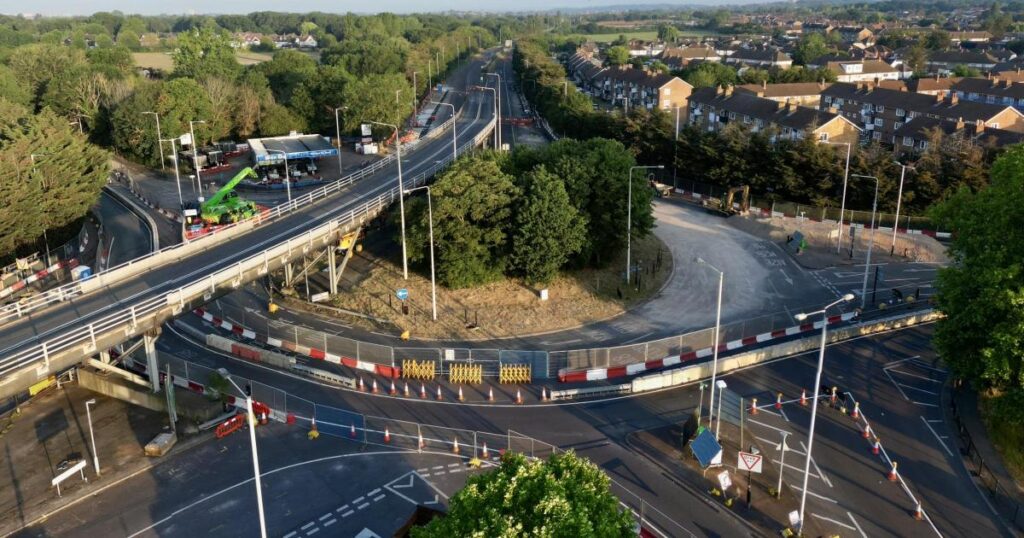Havering Council has advised that businesses impacted by the closure of the roundabout and flyover can apply for a business rates reduction.
Affected businesses should contact the Valuation Office Agency, a spokesperson said, as this is not dealt with by the council.
A council spokesperson said: “As the closure of Gallows Corner is a Transport for London (TfL) project, TfL are supporting local businesses during the works.
“We always knew there would be some short-term disruption during the closure as the Gallows Corner junction is a major artery used by residents, businesses and those travelling in and out of London.
“But these works will not only address urgent safety concerns but also lay the foundation for a more resilient and efficient transport network for Havering.”
READ MORE: ‘Gallows Corner traffic and hot weather’ causes rubbish collection delays
When the Recorder asked Transport for London (TfL) about the business rates reduction, we were directed to Havering Council.
However, a TfL spokesperson said TfL and its contractor Costain are “working together to support business” by consulting with those most affected by the works and ensuring access through Avenue Industrial Estate onto the A127 for vehicles up to 7.5 tonnes.
They added that marshals will be stationed along this access route to make sure it is kept clear, and that any larger deliveries will be taken to a depot at junction 28 of the M25, before being taken to the businesses in smaller vehicles on their behalf.
All businesses have also been sent a survey to establish access and delivery information to inform logistic plans, TfL said.
The Gallows Corner junction shut to all traffic – except black cabs, emergency vehicles and TfL buses – on June 23.
Business owners have previously hit out at TfL for considering access “last minute”, while others have feared the closure will have a “devastating” impact on their income.
However, TfL said that the closure is “essential” to allow for the renewal works to the flyover – built only as a temporary structure in the 1970s.




